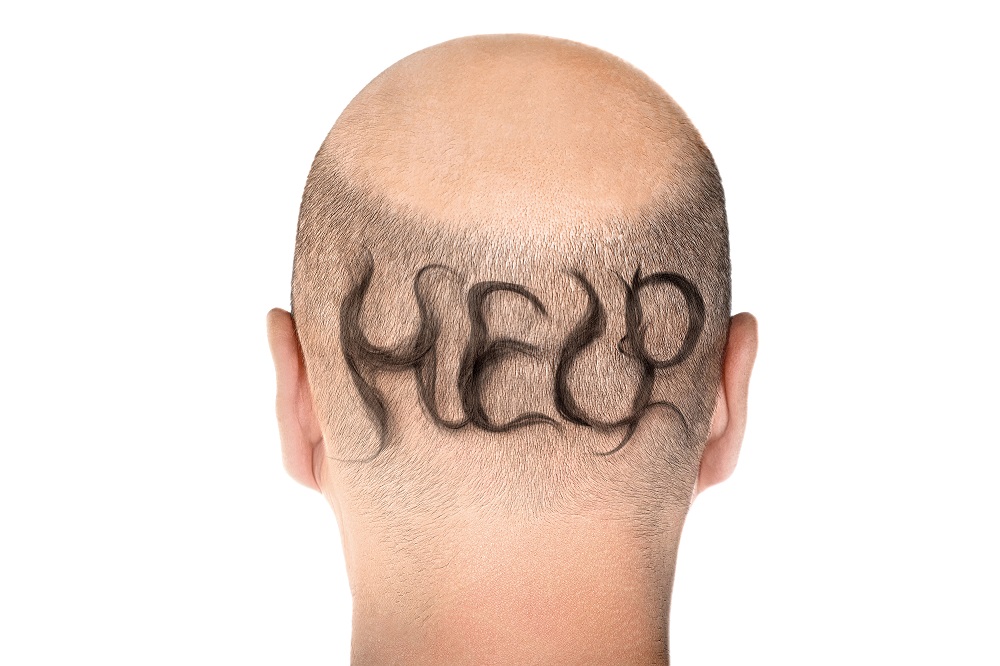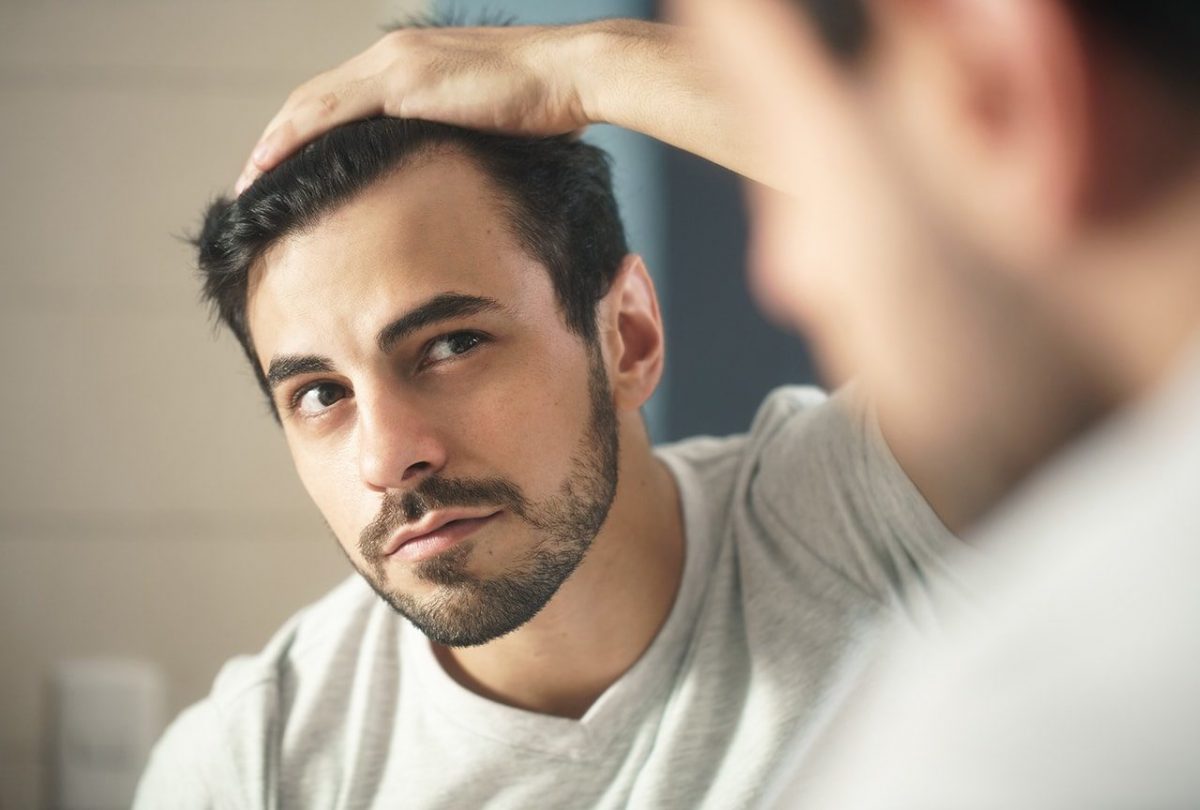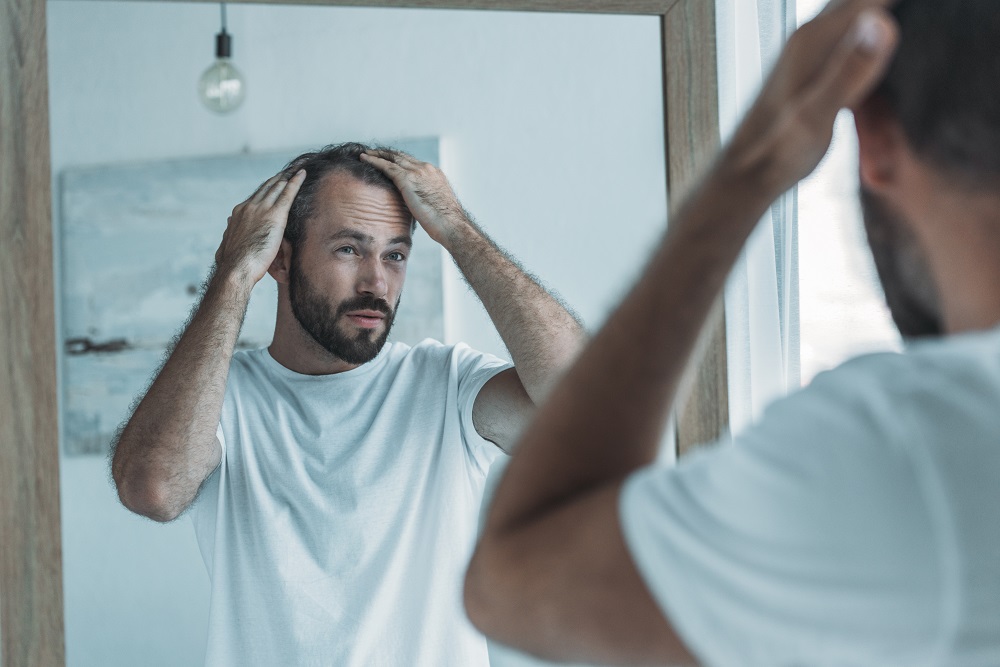What Does (and Doesn’t) Cause Hair Loss in Men
Every man will experience some type of hair loss as they age. So why is men’s hair loss still such a difficult topic to discuss?
Part of the confusion comes from the social discourse around hair loss. These days, there are lots of unsubstantiated rumours about why men lose their hair. Does wearing a hat lead to hair loss? How do genetics factor into your likelihood that your hair will thin during your lifetime?
To answer those questions, we’ve written this brief article to share more about the science behind men’s hair loss and reveal the real causes behind it. Take a look as we share important information about this common condition and demystify its origins.
What is men’s hair loss?
When people talk about men’s hair loss, they are typically referring to the condition known as male-pattern baldness (also known as androgenic alopecia).
Male-pattern baldness affects all men to some extent during their life. Some men completely lose all of the hair on their head, while others just notice some thinning of the hair. Regardless, most men will notice less that their hair has lost some fullness by the time they are 60.
The term “male-pattern baldness” comes from the fact that men typically lose their hair in a noticeable pattern as they age. In general, hair begins to recede at the temples before it also falls out on the top of the head (leading to what you’d call a bald spot). For some men, all of their hair eventually falls out after these initial stages of hair loss.
Although male-pattern baldness is incredibly common, it can have negative psychological impacts. Unfortunately, hair loss can spark anxiety and depression in some men, affecting their quality of life and bringing down their self-esteem. If you are having a rough time coping with the effects of hair loss, reach out to a close friend or schedule time with a counsellor to chat about your feelings.
Other than male-pattern baldness, some less-common medical conditions can also cause hair loss in men, including trichotillomania. Some medications may also cause hair loss as a side effect. Repeatedly wearing tight hairstyles (like braids or ponytails) or using harsh chemical products can also contribute to hair loss.
For the purpose of this particular article, we will discuss the contributing factors for male-pattern baldness, rather than these less-frequent scenarios.
What causes men’s hair loss?
Researchers have found that genetics is the single most significant determining factor for male-pattern baldness. In other words, if baldness runs in your family, you are more likely to experience it than a person who has older family members with thick heads of hair.
In men’s bodies, there is a sex hormone called Dihydrotestosterone (DHT), which derives from testosterone. Even before birth, DHT plays a role in the development of men’s bodies. In relation to hair loss, DHT is released into the bloodstream, where it goes to bind to receptors on the hair follicles. This bond between DHT and receptors causes the follicles to shrink until the point where they can no longer produce hair.
In men who experience male-pattern baldness, the hair follicles are more sensitive to DHT than in men who haven’t lost as much of their hair. The amount of DHT is the same across different men, so losing one’s hair doesn’t mean that that individual has more of the sex hormone in their body than someone who hasn’t seen much hair loss.
What doesn’t cause men’s hair loss?
Now that we have established what causes male-pattern baldness (genetics), we can address what doesn’t cause it. For instance, you may have heard the popular myth that wearing a hat can cause baldness. But according to doctors, this rumour isn’t true. While wearing tight hats or caps with harsh dyes might cause inflammation of the hair follicle, these behaviours on their own are unlikely to make your hair fall out.
There are other common misconceptions about hair loss, too. Some people think that using excessive amounts of hair products could lead to male-pattern baldness. But just like wearing a hat, using lots of products isn’t a cause in itself.
Finally, you might correlate stress with hair loss. Extreme stress or traumatic events can indeed make you lose your hair, but this type of hair loss is much different than your average case of male-pattern baldness.
In these situations, stress-related hair loss is generally associated with medical conditions like telogen effluvium or alopecia areata. For most people experiencing these sorts of health problems, hair can grow back when stress levels are reduced.
What can you do about men’s hair loss?
Understanding the reasons behind hair loss is the first step to treating it. With this knowledge, you’re better able to determine whether or not you want to treat your male-pattern baldness. You can also get informed about available treatment options and research what’s right for you.
If you don’t want to pursue medical treatment for your hair loss, you can try simple, at-home solutions like wearing hats, hairpieces or camouflage sprays to cover up the effects of male-pattern baldness.
On the other hand, if you are interested in finding more permanent ways to prevent or reverse hair loss, you’ll need to consult a medical professional. But if you’re like many men, you might not know where to turn when you begin experiencing hair loss or other men’s health issues.
Men’s Health Direct is an online medical clinic that offers confidential and convenient services to our patients all around Australia. We specialise in men’s health, providing personalised treatment plans based on the needs of our individual patients. Our professional clinic staff are trained to understand your most sensitive health concerns, including hair loss, erectile dysfunction and premature ejaculation.
We’ll start by completing a comprehensive consultation, listening to your relevant medical history and any chronic conditions. From there, our fully licensed doctors will develop your customised program, prescribing any medications that you may need. To learn more about the services from Men’s Health Direct, get in touch with our team of medical professionals by visiting our website today.



